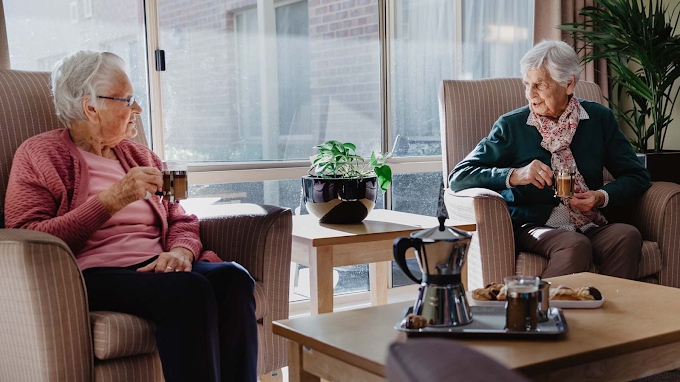

Understanding the different stages of dementia is crucial for providing effective care to individuals suffering from this condition. Dementia is a progressive neurological disorder that affects memory, cognition, and behavior. It is important to recognize the various stages of dementia in order to tailor care plans to meet the specific needs of each individual.
The first stage of dementia is often referred to as mild cognitive impairment. In this stage, individuals may experience subtle changes in memory and cognitive function, but are still able to perform daily activities independently. It is important to provide support and encouragement during this stage, as early intervention can help slow the progression of the disease.
The second stage of dementia is mild dementia, where symptoms become more noticeable and may include forgetfulness, confusion, and difficulty with language. Individuals in this stage may require assistance with certain tasks and benefit from structured routines and reminders.
The third stage of dementia is moderate dementia, where symptoms worsen and individuals may struggle with basic self-care tasks such as dressing and bathing. At this stage, around-the-clock care may be necessary, as individuals may become disoriented or agitated.
The final stage of dementia is severe dementia, where individuals lose the ability to communicate verbally or recognize loved ones. At this point, individuals require extensive assistance with all aspects of daily living and may require specialized care in a nursing home or memory care facility.
By understanding the different stages of dementia, caregivers can provide appropriate support and interventions at each phase of the disease progression. This can help improve quality of life for individuals with dementia and ensure they receive the best possible care.
Creating a safe and supportive environment for individuals with dementia is crucial for their overall well-being and quality of life. Dementia is a progressive condition that affects memory, cognition, and behavior, making it challenging for those with the disease to navigate their daily lives independently. By providing a safe environment, we can help minimize potential risks and ensure that individuals with dementia feel secure and comfortable in their surroundings.
One of the key reasons why creating a safe environment is important for individuals with dementia is to prevent accidents and injuries. Due to cognitive impairment, individuals with dementia may forget to turn off appliances, leave doors unlocked, or wander aimlessly without a sense of direction. By implementing safety measures such as installing grab bars, securing furniture, and using locks on cabinets and doors, we can help reduce the risk of falls, burns, or other accidents that could harm the individual.
In addition to physical safety, creating a supportive environment also plays a vital role in promoting emotional well-being for individuals with dementia. Feelings of confusion, disorientation, and anxiety are common among those with dementia, so it is essential to provide them with a calm and comforting space where they feel understood and cared for. This can be achieved through simple gestures such as maintaining familiar routines, displaying photos or personal items that evoke positive memories, or engaging in activities that promote relaxation and social interaction.
Furthermore, a safe and supportive environment can also enhance communication between caregivers and individuals with dementia. Clear signage, visual cues, and consistent routines can help facilitate effective communication and reduce misunderstandings or frustrations. Creating an environment where individuals feel heard and respected can improve their overall quality of life and foster stronger relationships between caregivers and those receiving care.
Overall, the importance of creating a safe and supportive environment for individuals with dementia cannot be overstated. By prioritizing safety measures, promoting emotional well-being, and enhancing communication strategies within the caregiving setting, we can significantly improve the quality of life for those living with dementia in Pascoe Vale. It is our responsibility as caregivers to ensure that individuals with dementia feel valued, respected, and supported as they navigate this challenging journey.

Stigma and discrimination based on age are significant challenges faced by elderly individuals when accessing and receiving care. Elderly individuals often encounter prejudice and negative stereotypes because of their age.. This can lead to discriminatory behavior from healthcare providers, family members, or society in general.
Posted by on 2024-10-24

As we age, it's important to have access to resources and support services that can help us maintain our independence and overall well-being.. Whether you're looking for assistance with daily tasks, social activities, or healthcare needs, there are numerous options available to older adults seeking to stay independent for as long as possible. One key resource for older adults is community-based programs that offer a range of services such as meal delivery, transportation assistance, and social events.
Posted by on 2024-10-24

As we age, maintaining social connections becomes increasingly important for our overall well-being.. Community engagement and staying connected with others play a crucial role in promoting mental and emotional health among older adults. Social isolation and loneliness are common issues faced by many elderly individuals, which can have detrimental effects on their physical and mental health.
Posted by on 2024-10-24

As we continue to see advancements in technology, the potential for future developments and trends in aged care services is vast.. Technology plays a crucial role in improving the quality of care for our elderly population, and there are several exciting possibilities on the horizon. One potential trend that we may see in the future is the increased use of robotics in aged care facilities.
Posted by on 2024-10-24
Individuals with dementia often exhibit challenging behaviors that can be difficult for caregivers to manage. These behaviors may include aggression, agitation, wandering, and resistance to care. It is important for caregivers to have strategies in place to effectively address these behaviors in order to provide the best possible care for individuals with dementia.
Understanding the underlying causes of challenging behaviors is key in managing them effectively. It is important to remember that individuals with dementia are not intentionally trying to be difficult - their behavior is a result of changes in their brain due to the disease. By understanding this, caregivers can approach challenging behaviors with empathy and patience.
Creating a calm environment Individuals with dementia may become agitated or anxious when they are in loud or chaotic environments. Creating a calm and quiet environment can help reduce challenging behaviors. This may involve minimizing noise, keeping the space clutter-free, and ensuring that the individual feels safe and secure.
Establishing routines Establishing daily routines can help individuals with dementia feel more secure and less anxious. Routines provide structure and predictability, which can reduce confusion and agitation. Caregivers should try to stick to a consistent schedule for meals, activities, and bedtime.
Effective communication Communication can be challenging for individuals with dementia, leading to frustration and confusion. Caregivers should use simple language, speak slowly and clearly, maintain eye contact, and give the individual time to process information. Nonverbal cues such as gestures and facial expressions can also be helpful in communicating effectively.
Redirecting behavior When faced with challenging behaviors such as aggression or wandering, caregivers can try redirecting the individual's attention towards a different activity or topic. Providing distractions or engaging the individual in a calming activity can help de-escalate the situation.
Offering choices Giving individuals with dementia choices empowers them and helps maintain their sense of independence. Caregivers should offer simple choices whenever possible, such as what clothes to wear or what activity to engage in. This can help reduce feelings of frustration or powerlessness.
Seeking professional help If challenging behaviors persist despite efforts to manage them at home, caregivers should seek professional help from healthcare providers specializing in dementia care. These professionals can provide guidance on additional strategies for managing difficult behaviors and offer support for both caregivers and individuals with dementia.
Taking care of oneself Caring for someone with dementia can be emotionally taxing, so it is important for caregivers to prioritize self-care. This may involve seeking support from other family members or joining a caregiver support group. Taking breaks when needed, practicing stress-reducing activities like meditation or exercise, and maintaining a healthy lifestyle are all crucial aspects of self-care for caregivers of individuals with dementia.
By implementing these strategies and seeking support when needed, caregivers can better manage challenging behaviors in individuals with dementia while providing compassionate care that enhances their quality of life.
